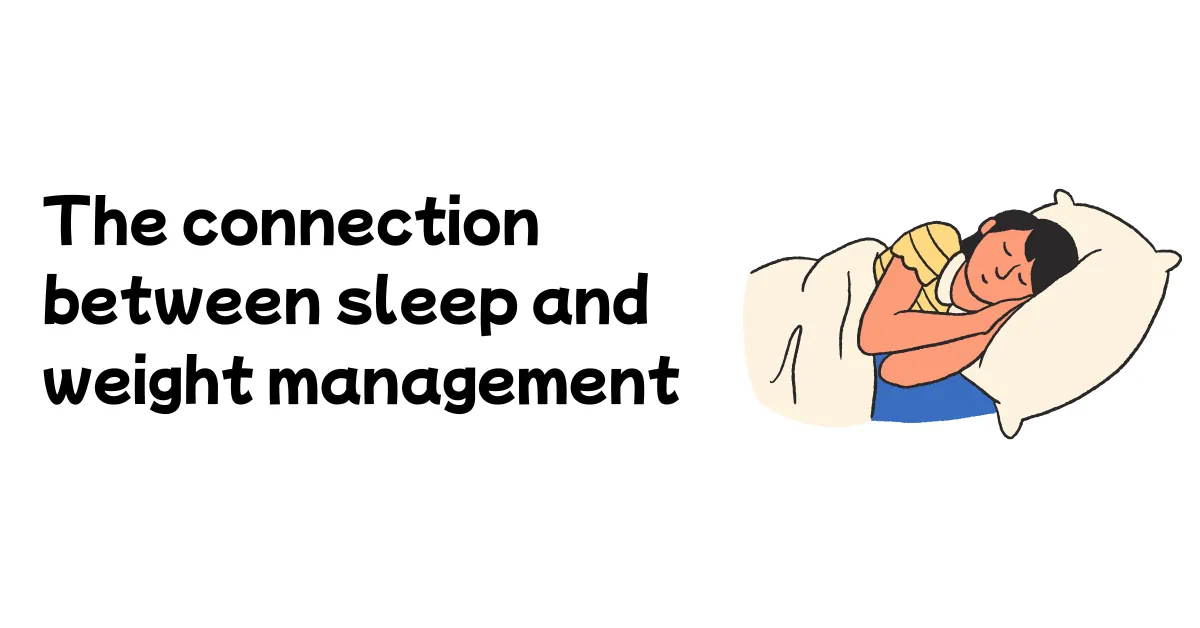We all know that getting enough sleep is important for feeling good, but did you know it’s also a huge factor in managing your weight? I wanted to dive into this topic because it’s something I’m super passionate about.
Why Sleep Matters for Weight Loss?
It might seem surprising, but sleep affects several hormones and processes in your body that play a key role in weight management.
- Hormone Regulation: Sleep helps regulate hormones that control your appetite, hunger, and satiety.
- Ghrelin: This hormone increases hunger. When you’re sleep-deprived, your body produces more ghrelin, making you feel hungrier.
- Leptin: This hormone decreases hunger and signals that you’re full. Lack of sleep reduces leptin levels, making it harder to feel satisfied after eating.
- Metabolism: Some studies suggest that sleep deprivation can slow down your metabolism, which means your body burns fewer calories at rest.
- Cravings: When you’re tired, you often crave high-calorie, unhealthy foods. This is because your brain is looking for a quick source of energy.
- Energy Levels and Exercise: Lack of sleep leads to lower energy levels, making you less likely to be physically active. Exercise, of course, is crucial for burning calories and maintaining a healthy weight.
- Insulin Sensitivity: Poor sleep can reduce insulin sensitivity. Insulin is a hormone that helps your body use glucose (sugar) for energy. When you’re less sensitive to insulin, your body is more likely to store fat.
The Sleep-Weight Gain Cycle
It’s easy to get caught in a vicious cycle:
- Lack of sleep: Leads to hormonal imbalances, increased cravings, and lower energy.
- Weight gain: Makes it harder to be physically active and can disrupt sleep patterns.
- The cycle repeats.
Tips for Better Sleep
Okay, so how can you improve your sleep? Here are some things that work for me:
- Establish a Routine: Go to bed and wake up around the same time every day, even on weekends. This helps regulate your body’s natural sleep-wake cycle (circadian rhythm).
- Create a Relaxing Bedtime Routine: Wind down before bed with calming activities like reading, taking a warm bath, or listening to relaxing music.
- Optimize Your Sleep Environment: Make sure your bedroom is dark, quiet, and cool.
- Limit Screen Time Before Bed: The blue light from phones, tablets, and computers can interfere with melatonin production, a hormone that regulates sleep.
- Watch Your Diet and Habits: Avoid caffeine and alcohol close to bedtime, and don’t eat large meals right before you go to sleep.
- Manage Stress: Practice relaxation techniques like meditation, deep breathing, or yoga to help calm your mind before bed.
- Regular Exercise: Regular physical activity can improve sleep quality, but avoid intense workouts close to bedtime.
My Personal Experience
I’ve definitely noticed a difference in my weight management when I prioritize sleep. When I’m well-rested, I make healthier food choices, have more energy for workouts, and just feel better overall.

